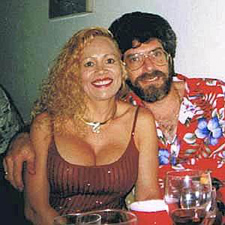Complete With Torture, Amputee Porn and Batman, Hotel Heir Murder Trial Set for This Month

ben_and%20narcy%20novack.jpg
Suspects’ ‘Chats’ Admissible, While Brooklyn Man Misidentifies Police
WHITE PLAINS, N.Y. — A Florida woman’s “chatty” statements to police after the killing of her millionaire husband were voluntary and can be used as evidence at her murder trial, a judge has ruled, despite her claims that police made her talk.
Some of the statements by Narcy Novack, of Fort Lauderdale, will be admissible only if she takes the witness stand, the judge said.